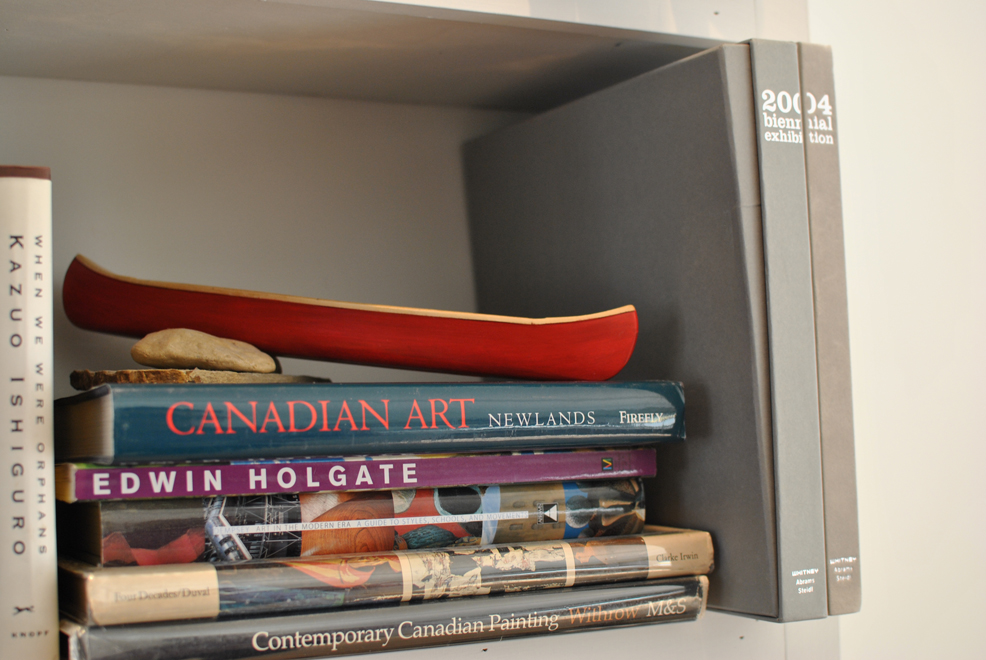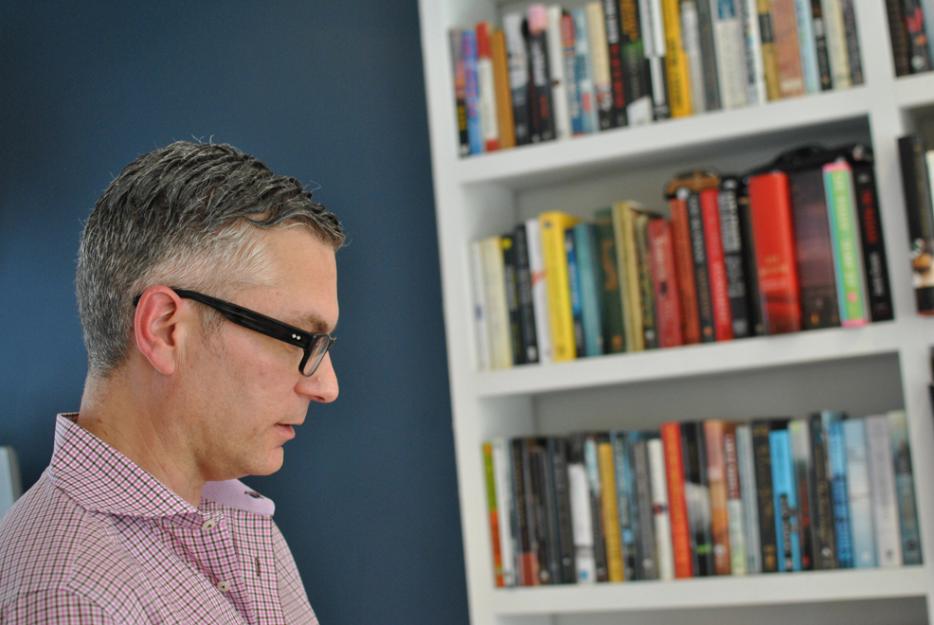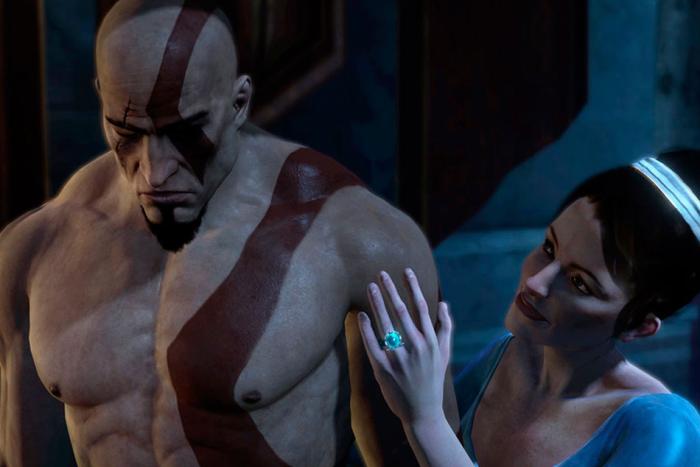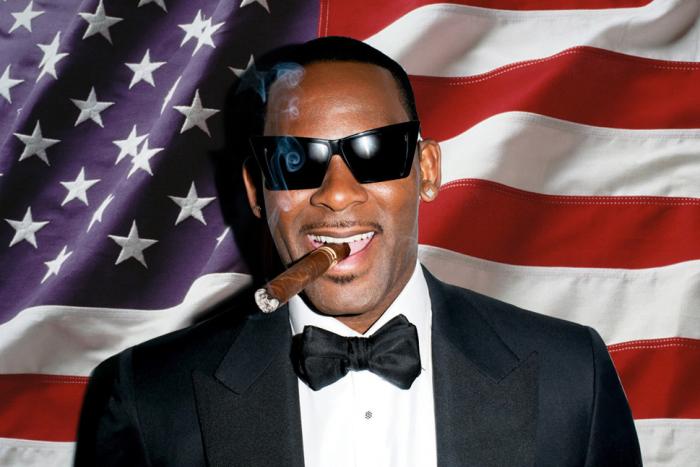Shelf Esteem is a weekly measure of the books on the shelves of writers, editors, and other word lovers, as told to Emily M. Keeler. This week’s shelf belongs to Andrew Pyper, who is the author of six novels, most recently The Demonologist. Andrew’s bookshelves are all over his West Toronto home, which he shares with his wife and their two young children. He showed me his library on a sun-shiny Sunday that begged to be called the first one of spring.
When we moved into this house we didn’t do any of the renovations, that was great, but it didn’t really have anything in the way of bookshelves. It was very clean and modern, so we added this. Just because a living room without books feels like a set for some kind of California thriller where people just die on the marble floor. So we had this installed. When we moved there was a book cull. There were just so many boxes and boxes and boxes. This is just one segment of where the books that I have now are—there are a bunch in my office, there are a lot in the bedroom, and then there’s a whack of paperbacks in the basement. Without having to give it much thought, I guess this is the kind of the favourites. Of hardcover fiction, at least. And cookbooks.

I’m a fan. Talk about good sentence makers! I really like her genre experiments, I guess. I admire too the way she’s gotten away with it. No one’s really pegged her for being a genre writer, she’s strictly literary. Maybe that’s an intimidation thing—you don’t want to upset her. You wouldn’t say something that you suspect she wouldn’t want you to say.
There can be different motivations for choosing a book. Sometimes it can be a pretty tactical, cat burglar-like—There must be something in here I can use, or, How is she doing that? I’ve heard people saying she does this thing with craft, and alright, the time has come to crack the safe and find out the secret. So that’s a very writerly impulse. To learn and to steal. Other times it can be strictly pleasure-driven, just a sense of, This is going to be good. There’s a third category, though I find myself less and less likely, almost to the point of it never happening anymore: the duty read. Where it’s like, Alright, okay, everyone’s been talking about this book. It’s won every award in the land. It’s supposed to make you a better person. So I’ll bite. And I almost never do that anymore. Those are the books too where I’ll do a little bookstore trial read. It’s amazing what you can take from the first page. Obviously, it’s not terribly fair to the entirety of the book, but I think it’s one of those things where you get a depiction or a reading of the DNA. The first page doesn’t tell the whole story, obviously, and the book can improve or change, but...let’s say you meet someone at a party. You look at them from across the room, and you can probably know, correctly, that you’ll never sleep together. You’re typically right about that. I think books are like that, too; if you’re not getting along after the first paragraph it’ll never work.






